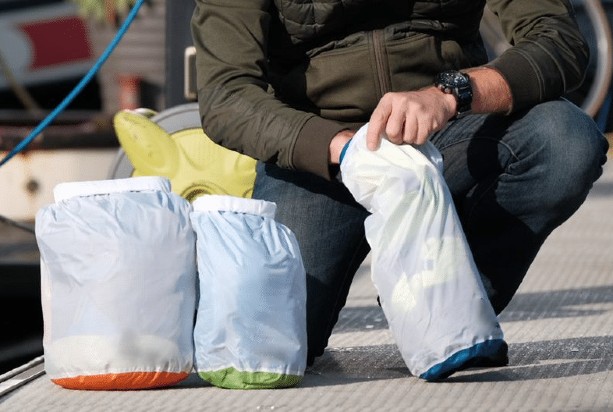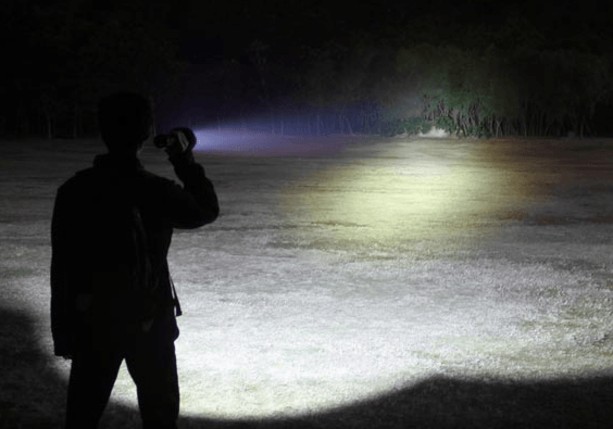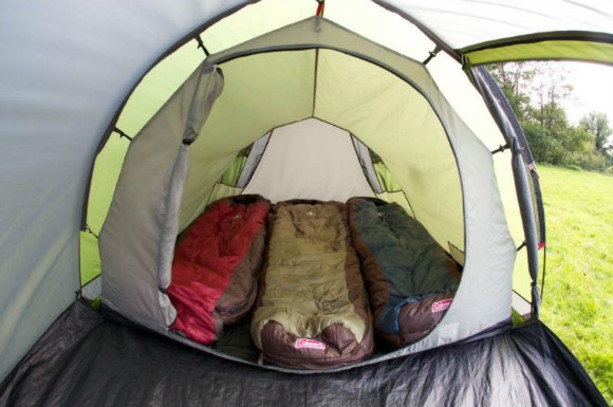7 Essential Camping Items to Pack in Your Backpack
Camping requires some serious preparations, to begin with. If you’re planning on exploring the wilderness and sleeping under the stars, you might as well be fully prepared. A skilled camper knows that the most important thing is having an efficiently packed backpack with all the essential items a camper needs. Everything else is a piece of cake once you get the camping backpack ready.

Contents
Dry Sacks for Camping
Dry sacks for camping are the most practical and convenient item you can acquire if camping is your thing. They fall under the category of innovative, durable, lightweight and compact camping gear. Dry sacks are made from high-quality waterproof materials along with reinforced stitching and roll-top closure that ensures water will stay away from your precious belongings.
The most commonly used material for the creation of these bags is 70D nylon – fabric with a high-density weave that’s strong, durable and less prone to tear and damage. And of course, it doesn’t let water penetrate. After all, no one wants maps, spare clothes and food soaking wet and ruined, right?
You can find dry sacks for camping in many sizes from really small ones that fit your phone to large bags with a capacity of 35 litres. They are versatile and you can use them for compartmentalizing your backpack or additionally storing and transporting something. You can even attach your dry bag sack onto the backpack and save you the trouble of carrying multiple bags in your hands.
You can easily put the dry sacks in your backpack and take them with you. They are soft and flexible, take up zero space but come in handy for when you need to store something. The inner coating is white which makes for better visibility. Unlike regular fabric dry sacks, here the white coating increases the brightness and makes your searching job a lot easier. Dry sacks for camping also come in diverse bright colours so that you can organize everything by colour.
Why carry a backpack in which you can’t successfully find anything when you can have one in which everything is under control and sorted out thanks to the dry sacks? And when you think about it, you provide all your belongings and gear with double protection from the harsh weather. In fact, it is recommended for all electronic devices to always be double-bagged because they are quite sensitive and prone to malfunction if they get in touch with water.
Tools for navigation is the second most important thing you need to pack. You can come across unknown terrains during your camping adventure so it is best if you’re prepared. A map and a compass are a must although you can use your phone’s GPS too as long as it has a battery and a good signal.
Rule number one: always have a backup plan. Electronic devices are not the best option to rely on when you’re in nature. So, make it your habit to always bring old school “gadgets” with you.

Flashlights and Batteries
Flashlights are the only solution you have if you don’t want to spend the night in complete darkness. You have quite a big spectrum of different flashlights and lanterns that can brighten up your night under the sky. There are a lot of small pocket size flashlights with high levels of lumens (brightness) that is easy to carry around and at the same time are effective and long-lasting. So, picking suitable illumination solutions for camping shouldn’t be hard for you.
On the other hand, you can use the batteries to bring your gadgets back to life and charge your phone so that you can use it in case you need it.
Spare Clothes and Boots
Since the weather is quite unpredictable especially when it comes to camping, you should always have spare clothes and boots in case you need to change. It’s not the smartest idea to wait for your clothes to dry off on you because that may lead to pneumonia and you don’t want that.
A skilled camper knows better and comes prepared for every possible scenario. It’s only you and your backpack against nature so you might as well pack like it’s armageddon.
Food Supplies and Water
When it comes to food for camping, try to be as practical as possible. Pack only food that doesn’t require special preparation like canned food, fruits and vegetables, sandwiches and croissants, chocolate bars, nuts and crackers. Usually, campers bring gas camping stoves on which they can prepare a meal. But as I said before, it won’t hurt to have a plan B in case plan A doesn’t work.
Also, don’t forget to bring plenty of bottled water because the quality of the water you may encounter along the way can be questionable.
First Aid Kit and a Tent Repair Kit
In case your tent suffers some kind of damage or you get hurt somehow, you need to have the right tools and bandages to repair whatever is broken or hurt. The tent repair kit contains sewing equipment as well as a special adhesive and fabric. Different types of tents require a different approach. Nevertheless, the tent repair kit allows you to quickly solve the problem and save your camping trip.
The first aid kit on another hand contains bandages, antiseptics, pain killers, allergy pills, latex gloves, cold compresses and cotton balls. That’s everything you need in case you suffer a mild injury or get an allergic reaction. The first aid kit can prevent whatever health issue you have from becoming life-threatening.

A Tent and a Sleeping Bag
You shouldn’t forget about the tent and sleeping bag if you don’t want to be sleeping on the cold, wet and harsh ground. The tent is your safe space while you’re camping and it protects you both from the wind and rain but also from everything else around you. In a tent, you can sleep safe and sound, with zero worries. To add to the level of comfort, you should combine the tent with a sleeping bag. Sleeping bags are made from waterproof material and have insulation properties meaning that you’ll be dry, warm and comfortable sleeping at the campsite. Never underestimate the power of a good night’s sleep. That’s especially important for campers that are physically active and need a lot of energy.






